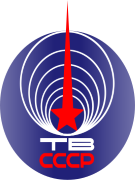|
Che Delilas posted:Edit: You should still enumerate the specific features and projects you worked on. Just make it clear somewhere that this job involved a team of developers, not just you. However, it's important to be honest in outlining your contributions and you really gotta be prepared to talk about them...I've interviewed students who wanted to join our lab who couldn't back up their CV claims with concrete technical details (even though they were involved in the projects in question, they just overstated their roles). That brings one's honest into question very very rapidly...
|
|
|
|

|
| # ? May 17, 2024 04:43 |
|
Che Delilas posted:I disagree that you should wait until you can answer almost all the questions in that book before you apply to jobs. There's quite a bit in there that you just don't need for your average entry-level developer job. When you say "average", you mean at places other than Google, Amazon, etc.?
|
|
|
|
Safe and Secure! posted:When you say "average", you mean at places other than Google, Amazon, etc.? Even at those places, you don't need to memorize CoC to apply and be successful. Being able to project to your interviewers that you posses problem solving abilities is more important than actually solving the coding question itself or solving it sub optimally.
|
|
|
|
So I've got my first draft of my updated resume done, and wanted to throw it this way for comments: https://www.dropbox.com/s/wzb0704bnjphpd8/AnonymousResume.doc?dl=0 Some of it could use rewording, I'm sure. I've also left a bit of space for expansion on bullet-points/potential addition of bullets if I think of more significant things. Thanks in advance, should any of you take a look and give a critique of things I could improve.
|
|
|
|
Safe and Secure! posted:When you say "average", you mean at places other than Google, Amazon, etc.? No, not necessarily, but I haven't interviewed with any of those or read any of their entry-level positions, if they even have any. But I don't believe that a job qualifies as entry-level if it expects you to be able to answer each and every question in the Scalability and Memory Limits section of that book, for example.
|
|
|
|
Places are aware that coding interview books exist, and the general content of those books. I just had a candidate the other day that all of the interviewers felt had memorized a coding interview book because they would nail the basic version that was similar to a common problem, but as soon as the problems were significantly changed or extended had difficulties. That said, he still got an offer, but at an entry level as opposed to a mid-senior level.
|
|
|
|
Sarcophallus posted:So I've got my first draft of my updated resume done, and wanted to throw it this way for comments: It feels like your bullet points are a mix of describing the products you worked on as well as your accomplishments and responsibilities in those products. The reader has to separate these out while digging through the bullet points, which honestly is a lot of effort for the 5-10 seconds they'll be giving your resume. You might want to experiment with splitting the descriptions of the project itself vs your work within that project into separate areas, as it gives a skimmer an easier format to find what they're looking for. This is what I've ended up using myself: quote:Header containing Role, Company Name, City/State, Start Time, and End Time, in whatever layout is preferable. Various nitpicks for your sample:
|
|
|
|
Progressive JPEG posted:It feels like your bullet points are a mix of describing the products you worked on as well as your accomplishments and responsibilities in those products. The reader has to separate these out while digging through the bullet points, which honestly is a lot of effort for the 5-10 seconds they'll be giving your resume. You might want to experiment with splitting the descriptions of the project itself vs your work within that project into separate areas, as it gives a skimmer an easier format to find what they're looking for. This is what I've ended up using myself: That seems like a solid idea. I'll look into how to best split that up! Progressive JPEG posted:Various nitpicks for your sample: Fixed the first three. The second nitpick especially helps make it read a lot better. The education section was definitely that way for consistency, I may change that around. Underlining seems to be a weird rendering issue? It looks fine when editing and in the PDF, so I probably won't worry too much about it. Using the full company name for OCLC is antiquated anyway, so I'll change the job header on that one. Last idea is solid, too. Thanks a bunch!
|
|
|
|
Tunga posted:In other news, just quit my terrible job, hooray. First I did some cool stuff like get paid to not go to work, then I did some cool stuff like go on holiday and ride rollercoasters and see spaceships and drink butterbeer, then I did some not so cool stuff like deal with recruiters and want to murder them all, and finally I did the best thing when I found a role that seems pretty great, suits my experience level perfectly, is in a great location, and has great benefits. Salary could have been a little higher but it's still decent and everything else seems perfect. Thanks to everyone who listened to my whine about recruiters and how bad I am at <insert thing> over the last few months, I will endeavour to stop doing that now!
|
|
|
|
To follow up on my last post, I spent last weekend at a friend's and practiced soft-skill interviewing. Surprisingly, I was totally wrong about not being able to take the practice seriously. Despite joking around more than I would in a real interview, it felt real. The questions were hard and I got the same sinking feelings when I knew my answers sucked. On the bright side, I've exercised my memory and built a repertoire to answer the ubiquitous "tell me about a non-ideal situation and how you responded" type questions. It took a while to remember times when I had a beef with a co-worker or something got seriously screwed up in a project, I don't have a great memory. I've gotten better at taming my "uhs" and can tell when I've gotten on a tangent that doesn't answer the question. I think talking a lot and forgetting the question is a nervous response. I'm planning to study technical questions alone and then review with the same friend later. I'll probably work on the soft-skills part again too. My work gave me a modest bonus of cash and stock options, but I'm still way underpaid for the Bay Area. I don't know if I'll have the money to exercise the options anyway... I feel like they're trying to mollify me, but it doesn't come close to my coworkers or classmates salaries.
|
|
|
|
Job I've had for a month turned out to either be a bad culture fit, or more likely getting sick the week of christmas without PTO looked bad or whatever. FIIK. I already called some people and even the good recruiter in my area, but nothing will happen until next week at the earliest since, welp, it's loving christmas. So where does one go from here? But since I have time to think I want to unpack what happened. The stated reasons were "bare minimum effort and lack of dependability." This is of course code for "we don't need reasons" and "merry loving christmas." I stayed late, very late, if something was critical and it needed to get done. Once I actually learned the systems I got more than my assigned tickets done. Not sure how that's bare minimum or not dependable. I was only out sick Tuesday and today. so it's not absenteeism. I started coming in at 8 to leave at 5, and I guess the lack of staying late looked bad, even though I beat everyone else to work? I'm thinking it was probably political. The PM is a former executive assistant to a VP who no longer needed her and begged to keep a job. So, with zero development or management experience, she became the PM and basically demanded that all communications go through her (wtf?) and also that we do our own bizarre workflow in Jira instead of letting her actually assign poo poo and change statuses. Also, apparently if I had done double my number of tickets I wasn't quick enough in asking for more work the week of christmas So anyway, if it's just a month of a gap on my resume, how do I spin it? Just say "bad fit" (which is true) or say I took some personal time? Meh.
|
|
|
|
Space Whale posted:Job I've had for a month turned out to either be a bad culture fit, or more likely getting sick the week of christmas without PTO looked bad or whatever. FIIK. I already called some people and even the good recruiter in my area, but nothing will happen until next week at the earliest since, welp, it's loving christmas. So where does one go from here? If asked for dates during an interview you can give specific dates and say that during the month(s) off you scoped out a project with a friend or something but didn't move forward with it. Or you can say you wanted to spend some time to get to know a few new technologies before regrouping and deciding on your next direction (thus the time off). No Wave fucked around with this message at 15:28 on Dec 24, 2014 |
|
|
|
Or you can just say you had personal business to take care of since it's none of theirs. You don't have to account for every goddamn day in your life that you don't spend driving a desk (this is me mad at a culture that regards work as a virtue in and of itself, not mad at you for worrying about it).
|
|
|
|
This along with your post in the Coding Horrors thread makes it pretty clear that the organization had no idea how to manage developers. "Tickets" are a terrible metric for measuring developer performance. If you've only been there a month, don't even list it. It probably won't even come up. Next time you interview, make sure you ask questions about this kind of thing. Knowing how they manage projects and assess developer performance is just as important as how well the developers write code. Bad management leads to misery: You can improve a lovely codebase, but you're probably not going to be able to change management. New Yorp New Yorp fucked around with this message at 16:13 on Dec 24, 2014 |
|
|
|
Ithaqua posted:"Tickets" are a terrible metric for measuring developer performance. Yeah, I did a doubletake when I saw tickets mentioned and wondered if you'd meant to post in the IT bitching thread. Sorry about the job, but overall the place sounds like it was a wreck anyway.
|
|
|
|
It was a maint programming job fixing up a pile of poo poo. I like a challenge, and I learned a lot, and even more about what NOT to do, but it really does seem like they simply had no clue how to manage people. A dev is not automatically a good manager, and a EA who has no tech or management experience is going to be an awful PM.
|
|
|
|
Really bad culture fit is all you need to say. You could give them some of the more egregious examples to seal it. Any rational recruiter will think "Wow that is really bad."
|
|
|
|
perfectfire posted:Really bad culture fit is all you need to say. You could give them some of the more egregious examples to seal it. Any rational recruiter will think "Wow that is really bad." I'm just going to omit. Everything I learned there I could say I learned at my prior job, and I did. Still, it would be nice if part of your assessment of how much you learn as a dev included "what went wrong" that wouldn't be seen as a "this dev is a complainer, do not hire." A completely awful build process and management structure is not the best way to run things. The only dev who has been around for any length of time is a catty rear end in a top hat with 20 years experience who is incredibly cocky. Everyone else keeps getting let go before the 90 days are up. Management smell?
|
|
|
|
perfectfire posted:Really bad culture fit is all you need to say. You could give them some of the more egregious examples to seal it. Any rational recruiter will think "Wow that is really bad."
|
|
|
|
e: actually might be a better question for the game dev thread
Son of Thunderbeast fucked around with this message at 03:08 on Dec 27, 2014 |
|
|
|
Besides embedded systems jobs, what kind of jobs tend to share the same skill set as embedded systems?
|
|
|
|
meatpotato posted:Besides embedded systems jobs, what kind of jobs tend to share the same skill set as embedded systems? Most programming jobs that don't involve frontend or web/CRUD/enterprise style work. C/C++ application programming, for example. Higher end embedded systems are close to "mobile" if you want to get familiar with Java or Objective-C.
|
|
|
|
I'm currently a freshman CS student (at a community college) and I've been trying to figure out what to do as a career in programming, taking online courses (like edX's CS50) on top of what I'm doing at college and dipping my feet into programming languages like C, Java, and html (most familiar with the first). I've also been trying to reach out to my professors and see what opportunities might be available to me in my local area, like hackathons. I'm really worried about not having a firm vision of what I want to do as a career by the time I start applying for transfers next fall. It seems to me that web/software development is all the rage when it comes to CS careers right now, but I would like to do something more intellectually engaging, like cryptography, data analysis or controls. I apologize for my ignorance. VVV Muchisimas gracias, amigo. America Inc. fucked around with this message at 11:09 on Dec 30, 2014 |
|
|
|
Your main order of business right now is to generally get good at programming. If you're good at programming, you'll be fine. If you suck at programming, you might not be. That's pretty much how it goes. By "generally get good" I am being kind of vague. Most of this involves making real poo poo but some of this involves learning or exposing yourself to stuff. For example I think that people that haven't implemented some elementary data structures in C/C++/Java (linked lists, hash tables, red-black trees, and such) and something on par with a simplistic chess engine have a stunted education. But so do people that haven't made a dynamic website in PHP (or something) that stores stuff in an SQL database. That's icky, it involves having to read documentation and learning how to create tables in a database, you have to learn HTML and possibly CSS, but reading docs and following them is pretty much how life works. My current "not intellectually engaging" activity is reading documentation about how object files are parsed and how x86 instructions are encoded. I'm working on a compiler, you see. That's not intellectually engaging, either. (Maybe it is, the first time.) Dicking around with programming language design is intellectually engaging. But if you want anybody to use it, 99% perspiration is still the rule; knowledge and thoroughness wins the day. (Apologies to KaeseEs and Ipsum.) If you do data analysis, guess what: you're going to be doing the same sort of statistics over and over again. It's not like you'll be inventing new techniques left and right. And you'll have to munge HTML and CSV and do all sorts of drudgery along the way. And you might be putting stuff in a database at some point and need to make the right indexes and there's yet more ways some webdev experience will get reused. True intellectually engaging work is actually the worst. Guess what pure mathematicians do all day: they sit there, failing to make progress, 90% of the time. If they didn't have classes to teach or grant proposals to write, they'd go crazy. A webdev, on the other hand, will be adding features and making the site make more money and go home having accomplished something material. I think you should be aware that your listing of "cryptography, data analysis or controls" has a similar sort of ring as somebody that says they want to go into game development. Only you've picked what you would think is fun instead of what they think. If you aren't actually doing cryptography or data analysis or controls (whatever that is) right now, you don't really know how much you'd like it. One thing that you should do in college is pursue these things, and other things you think you wouldn't like, as long they're working towards mandatory credits for your degree and you're not just throwing away tuition money. That way you can discover more accurately what you like doing and what you don't like doing. For example, in college, I, for no reason, ignored the CSE classes or even EE classes I could have taken, just assuming that this stuff was lame. In retrospect, I was the one that is lame. Fortunately, there's nothing stopping me from learning that stuff just because I'm not in college anymore. Anyway, get good at programming.
|
|
|
|
I've finished reading through this thread and wanted to ask for advice/a sanity check. I'm a teacher looking to make a career switch in the next year to year and a half. I started programming in late 2012 when I decided I'd write new scheduling tools for the busted rear end constantly breaking ones our office used, and discovered I loved programming, and have been writing code daily since then. Since I finished the scheduler, I've been taking free online courses (coursera, codeacademy, udacity), reading tutorial sites, and buying whatever textbooks I can get on the cheap. I've gone through a good bit of projecteuler and this past year I've been working a lot in Unity - I finished a few small game projects, made a Play store release (that I have to clean up and re-release soon, and port to iOS), and am about to sell a Unity asset (a procedural item engine). Making games and game stuff is really fun, but I feel like maybe focusing on that might limit me to game studios when it comes time to find a job. I'd like a career in game dev, I suppose, but I really just enjoy writing interesting code and solving problems - not specifically making games. I almost always write in C# although I'd say I know a good bit of Java, too. I know a little C++, HTML and Javascript. I've been using LINQ a ton in my most recent project, and feel really confident with it. I'm very familiar with Unity, and comfortable with Visual Studio and Xamarin Studio. I still have pretty significant student loans so I want to avoid having to go back to school, but attending one of those boot camps might be possible. Right now, I'm learning everything I can and trying to make a robust, well-rounded portfolio. My aim is to land a mobile development or junior (.NET?) developer job by early-mid 2016. I don't know if this is a good metric of my skill level or not, but from the interview questions I've seen on Glassdoor and StackExchange, the C# and platform-independent .NET questions are mostly answerable, albeit pretty challenging, for me. So, my first question is: for my next project/portfolio piece I'd like to make a workout tracker that focuses on total weight lifted as a metric of progress. Should I focus more on having another mobile project under my belt and get the Xamarin Studio indie sub and go that route (a way I'm pretty comfortable with), or, branch out a little more, learn about HTML5, CSS, and ASP.NET and make it a web app -- something I know very little about, but I think would need to understand as a .NET developer? Second question: Because I write primarily in C#, I want to take Microsoft's Programming in C# certification test (70-483). This would probably be the first of a few certs I'd try to get in the next year or two. I've seen a bunch of accomplished developers kind of turn their noses up at these, but I think because I'm not coming in with the degree I should get them to show that I know at least enough of what I'm talking about to pass a test. But, is this a good use of my time? Is it better to forgo the certifications and just focus on filling out my portfolio? Third question: My current job doesn't pay well, but the hours are great. I can study/write for ~50-60 hours a week without losing my mind. I'm pretty drat lucky to have this much time available to me, so how best should I use it? The current plan is to keep producing portfolio pieces, get the cert, and go through any relevant language/architecture/discrete math textbooks I can get. Is there a better use of my time? Should my focus be tighter? Should I skip the textbooks and just use that time to round out the portfolio? The contract for this job ends December 2015, and I'll have enough money saved to float for a few months, so I can't do this forever. Pentecoastal Elites fucked around with this message at 16:45 on Dec 30, 2014 |
|
|
|
Onion Knight posted:Third question: My current job doesn't pay well, but the hours are great. I can study/write for ~50-60 hours a week without losing my mind. I'm pretty drat lucky to have this much time available to me, so how best should I use it? The current plan is to keep producing portfolio pieces, get the cert, and go through any relevant language/architecture/discrete math textbooks I can get. Is there a better use of my time? Should my focus be tighter? Should I skip the textbooks and just use that time to round out the portfolio? The contract for this job ends December 2015, and I'll have enough money saved to float for a few months, so I can't do this forever. Honestly if you are doing all that then you are using your time more effectively than 99% of anyone. I'd suggest going to a user group or a meetup or conference or something like that and start talking to people for someone to hook you up with a job.
|
|
|
|
Onion Knight posted:
Do you have "formal" CS education (maybe i missed this in your post)? If you're interviewing for entry-level positions, unless it is a specialized shop, your success will be contingent on various "How do i linked list?" type of questions (data structures, complexity theory, etc) rather than expertise with specific APIs. Having a portfolio is good, especially if you don't have a CS degree (which kinda serves as a portfolio, in the sense that it gives you projects to talk about in interviews and on your CV). However, you might want to throw some online courses on CS fundamentals in there as well. You can get completion certificates from those and I've been getting the vibe that recruiters are paying more attention to those things lately.
|
|
|
|
Nope, no formal CS education unfortunately. I think I might focus more on getting course certs than textbooks, then (not to say I'll stop reading textbooks, just shifting focus) Thanks for the advice, guys! I'll probably have a few more questions to ask in the coming months.
|
|
|
|
Onion Knight posted:Nope, no formal CS education unfortunately. I think I might focus more on getting course certs than textbooks, then (not to say I'll stop reading textbooks, just shifting focus) No problem  . Once you are comfortable with the interview-fodder material, then you can also look into some of the cooler and more applied MOOCs that are available out there. Anything that has to do with big data and data science is very catchy these days. Same thing for computer vision. Plus those courses can be a ton of fun. . Once you are comfortable with the interview-fodder material, then you can also look into some of the cooler and more applied MOOCs that are available out there. Anything that has to do with big data and data science is very catchy these days. Same thing for computer vision. Plus those courses can be a ton of fun.Also, based on how you describe yourself and your engineering skills, you are already way ahead of 90% of the CS MSc graduates that come out of my University and its all about overcoming the fact that you don't have a degree in the field  . .
|
|
|
|
meatpotato posted:Besides embedded systems jobs, what kind of jobs tend to share the same skill set as embedded systems?
|
|
|
|
I'm having lunch with my old boss soon and he's probably going to talk about job opportunities. What should I order? It's a sit down restaurant in a nice area of downtown and serves sandwiches, pasta, and pizza.
|
|
|
|
Do not order spaghetti!
|
|
|
|
Acer Pilot posted:I'm having lunch with my old boss soon and he's probably going to talk about job opportunities. What should I order? It's a sit down restaurant in a nice area of downtown and serves sandwiches, pasta, and pizza. Whatever's on the menu that you can eat without making a mess and which doesn't take too long to chew.
|
|
|
|
Ok, I guess no hand held food then and nothing with too much sauce? I'll see if I can get him to order first and maybe go with something similar or the same.
|
|
|
|
Why don't you just order a thing that you want to eat for lunch? "This candidate is highly talented and has all the right experience but ordered the wrong sandwich so we won't be hiring."
|
|
|
|
Tunga posted:Why don't you just order a thing that you want to eat for lunch? Watch sandwich tests be a thing one day! It's kind of a pricey place so I'm just thinking I should order something in the same price range and not make me look like a big goof while eating.
|
|
|
|
Tunga posted:Why don't you just order a thing that you want to eat for lunch? This is why I said no spaghetti, FTR, it was a really bad joke about the potential employer thinking he'll write spaghetti code.
|
|
|
|
When ordering an Italian item, please use a strong Italian accent, as this is impressive. Same thing with other cuisines. It helps to practice in front of a mirror, saying the names of popular dishes until you can get it right.
|
|
|
|
Acer Pilot posted:I'm having lunch with my old boss soon and he's probably going to talk about job opportunities. What should I order? It's a sit down restaurant in a nice area of downtown and serves sandwiches, pasta, and pizza. Double scotch. Show him who's in control here.
|
|
|
|

|
| # ? May 17, 2024 04:43 |
|
Acer Pilot posted:Watch sandwich tests be a thing one day! https://elizabethpetrylee.wordpress.com/2011/10/19/how-to-answer-the-most-dreaded-interview-question/
|
|
|

























